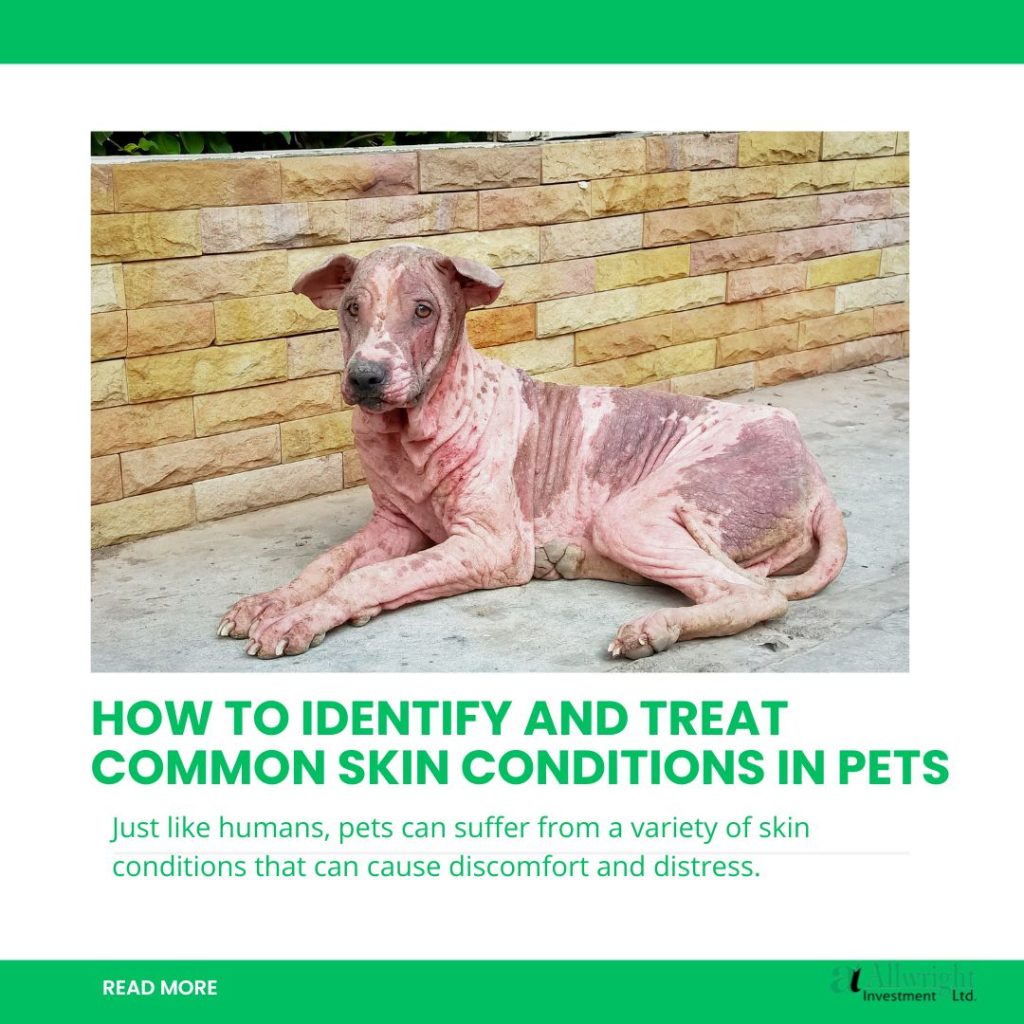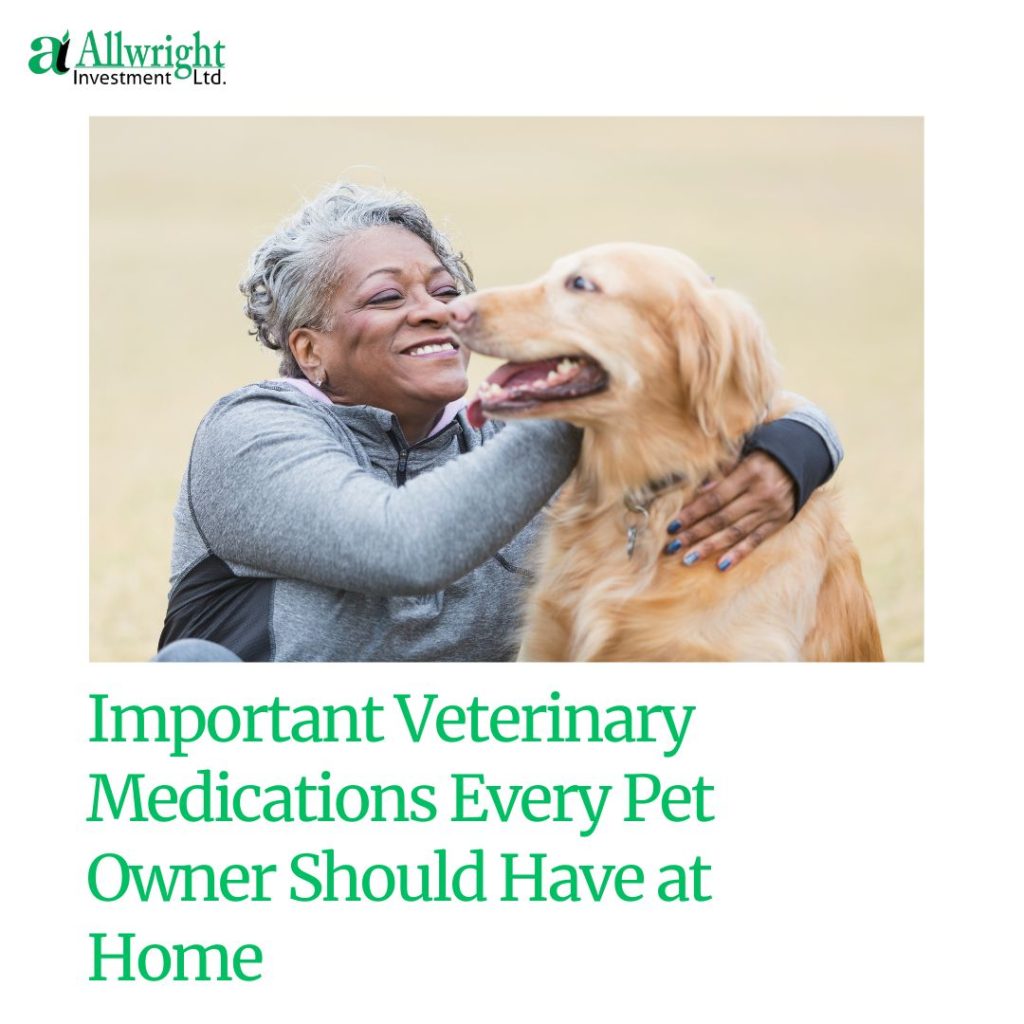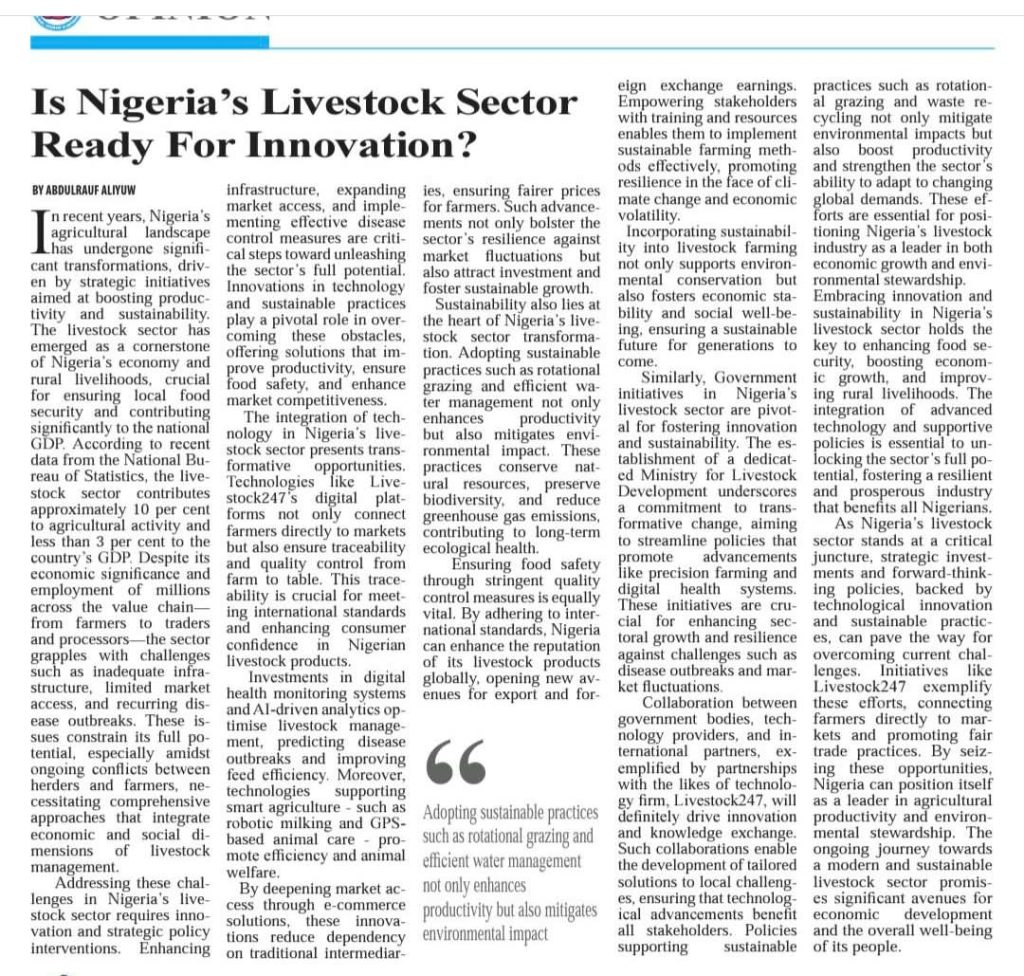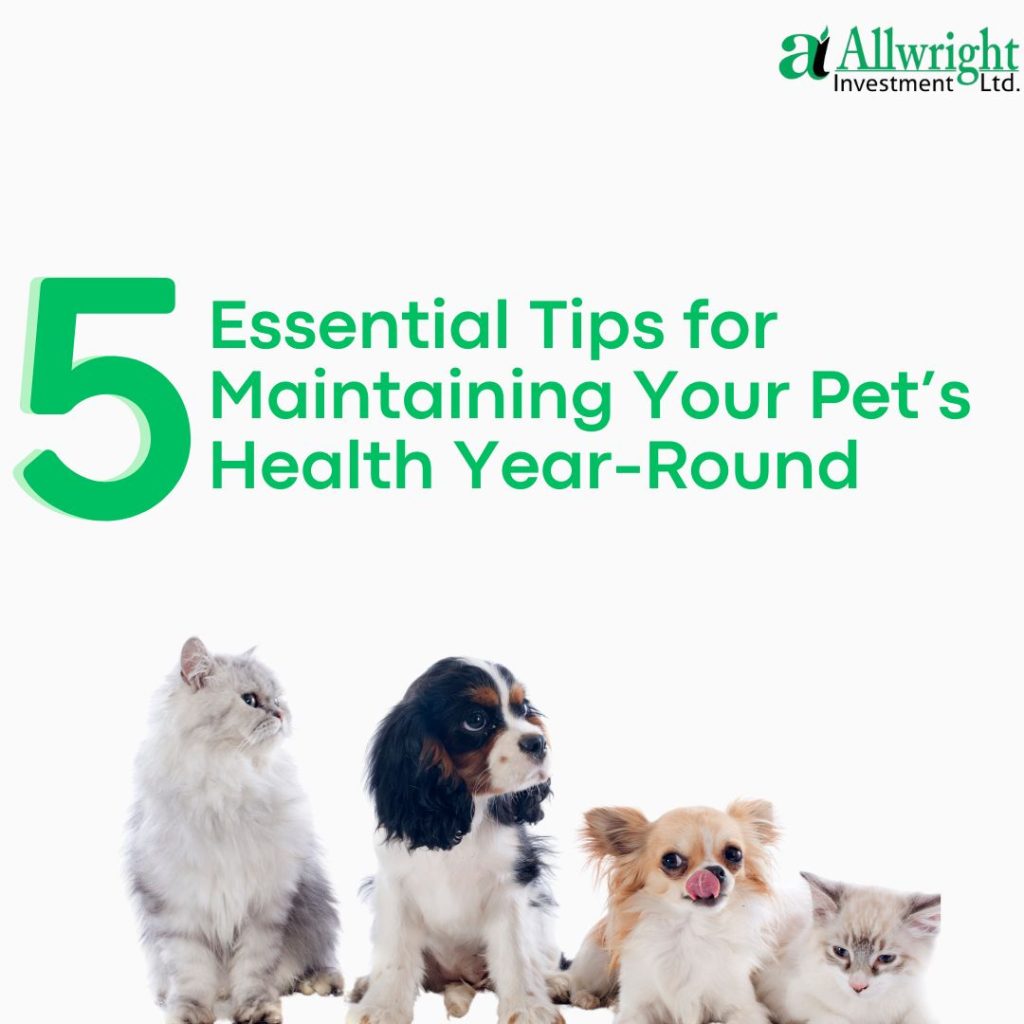The Importance of Early Intervention in Treating Pet Illnesses
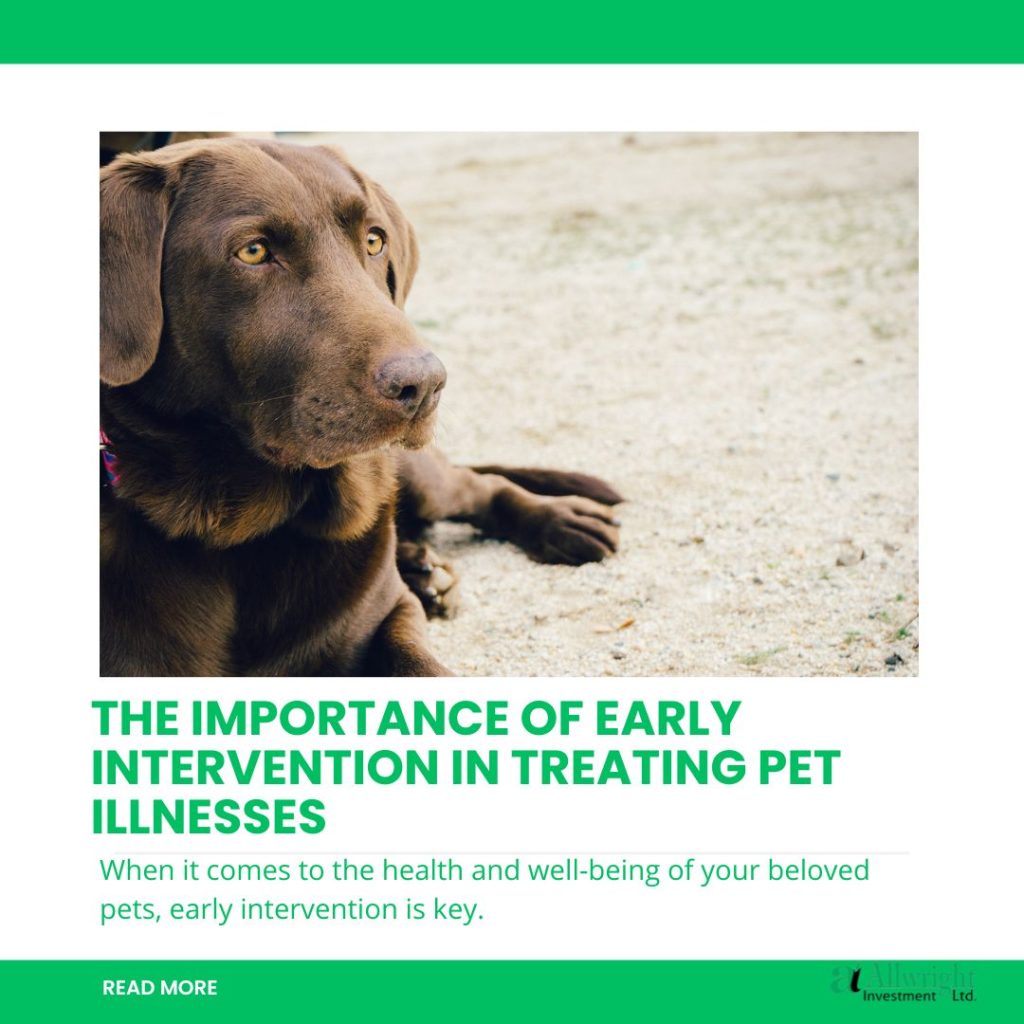
When it comes to the health and well-being of your beloved pets, early intervention is key. Just like humans, pets can suffer from a variety of illnesses that, if left untreated, can escalate into serious and sometimes life-threatening conditions. At Allwright Investment Ltd., we understand the deep bond you share with your pets, and we’re here to help you take proactive steps to ensure their health and happiness.
Why Early Intervention Matters
Early intervention in treating pet illnesses is crucial for several reasons:
- Prevention of Disease Progression: Many pet illnesses, such as infections, diabetes, and heart disease, can worsen over time if not addressed promptly. By catching and treating these issues early, you can prevent the disease from progressing to a stage where it becomes more difficult and costly to manage.
- Cost-Effective Care: Treating an illness in its early stages is often less expensive than dealing with advanced conditions. Early diagnosis can save you from costly surgeries, long-term medication, and frequent veterinary visits. This not only saves you money but also reduces the stress on your pet.
- Improved Quality of Life: Pets suffering from untreated illnesses may experience pain, discomfort, and a diminished quality of life. Early treatment can alleviate symptoms and improve your pet’s overall well-being, allowing them to enjoy a longer, healthier life.
- Better Prognosis: The sooner a health issue is identified, the better the chances of a full recovery. Early intervention often leads to more successful treatment outcomes, giving your pet a better chance of returning to their normal, happy self.
Common Signs That Require Early Attention
As a responsible pet owner, it’s important to be vigilant and aware of the early signs of illness in your pets. Some common symptoms that warrant immediate attention include:
- Changes in Appetite or Weight: A sudden loss or increase in appetite, or noticeable weight changes, can be a sign of underlying health issues.
- Lethargy or Unusual Behavior: If your pet is less active than usual or exhibits unusual behavior, it could be a sign that something is wrong.
- Vomiting or Diarrhea: While occasional vomiting or diarrhea might not be alarming, persistent or severe symptoms should be addressed by a veterinarian.
- Difficulty Breathing: Labored breathing, coughing, or wheezing can indicate respiratory problems that need prompt attention.
- Skin Issues: Persistent itching, redness, or the appearance of lumps and bumps on the skin should not be ignored.
How Allwright Investment Limited Can Help
At Allwright Investment Ltd., we offer a comprehensive range of veterinary services designed to support early intervention and ongoing pet health. Our team of experienced veterinarians is equipped to diagnose and treat a wide range of conditions, ensuring your pet receives the best care possible. Here’s how we can assist:
- Routine Check-Ups: Regular veterinary visits are essential for monitoring your pet’s health. During these check-ups, our veterinarians can identify potential issues before they become serious.
- Diagnostic Services: We offer state-of-the-art diagnostic tools, including blood tests, X-rays, and ultrasounds, to accurately diagnose any health concerns your pet may have.
- Veterinary Medications: We provide a full range of veterinary medications to treat illnesses in their early stages. Our team will guide you in administering these treatments to ensure the best results.
- Preventive Care: In addition to treating illnesses, we also focus on preventive care, including vaccinations, deworming, and nutritional advice to keep your pet healthy and reduce the risk of future illnesses.
- Emergency Services: In case of emergencies, our veterinary team is ready to provide prompt and effective treatment, giving your pet the best chance of recovery.
We understand that managing your pet’s health can be challenging, especially when faced with unexpected illnesses. You may worry about the cost of treatment, the stress of managing your pet’s care, or the fear of losing a beloved companion. At Allwright Investment Limited, we’re here to ease those concerns:
- Affordable Care: We strive to provide cost-effective solutions without compromising on quality. Early intervention not only saves you money in the long run but also gives your pet a better chance at a full recovery.
- Expert Guidance: Our veterinarians are here to guide you every step of the way, from diagnosis to treatment, ensuring you feel confident in the care your pet is receiving.
- Compassionate Support: We treat every pet as if they were our own, offering compassionate care that prioritizes your pet’s well-being and comfort.
Your pet’s health is our top priority at Allwright Investment Limited. By taking a proactive approach and seeking early intervention when health issues arise, you can ensure that your pet enjoys a long, healthy, and happy life. Don’t wait until it’s too late—schedule a check-up with our veterinary team today and give your pet the care they deserve.

